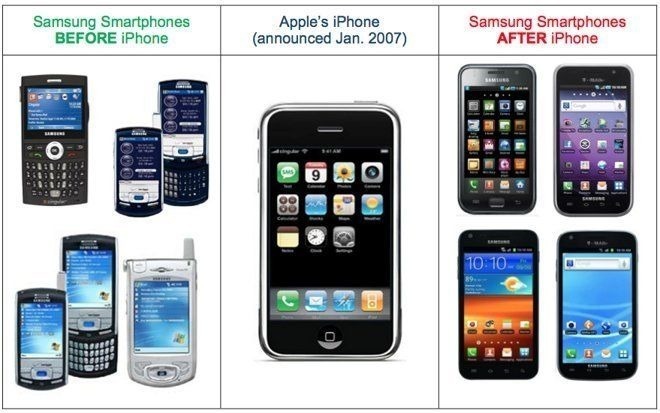The first Apple versus Samsung smartphone trial is headed back to the courtroom again, with the presiding judge ordering a new trial to determine damages for Samsung's willful violation of Apple's design patents in an early round of smartphones because of a century-old law overturned by the U.S. Supreme Court.

On Sunday, Judge Lucy Koh ordered that Apple and Samsung return to court. Apple will need to prove that it should retain the entire $399 million award it was granted in 2016, considering that the Supreme Court overturned the law demanding that design patent violation trials can not demand the entire profits of an infringing device.
The trial is not about if Samsung has violated Apple's design patents, as that matter has been determined. Apple must specifically point out which "article of manufacture" in each device infringed on Apple's design patents.
"The Court finds that the jury instructions given at trial did not accurately reflect the law," wrote Judge Koh. "The instructions prejudiced Samsung by precluding the jury from considering whether the relevant article of manufacture ... was something other than the entire phone."
The overturned law dates back to a trial 1885 that awarded minute damages to a carpet manufacturer after their designs were stolen by a competitor. An amendment to the Patent Act in 1887 required profit from infringing products be paid as damages.
As part of the 2016 Supreme Court session, the judges ruled that the law was antiquated, and irrelevant to modern products where design is only a small portion of an entire product's value. However the Supreme Court ruling issued no guidance on how damages should be assessed.
Apple and Samsung were due in court on Oct. 25 anyway -- and that case management hearing will expand as a result of Sunday's ruling.
The latest twist in the ongoing legal drama was first noted by FOSS Patents.
The core lawsuit has been in progress for over five years, with it determining that Samsung copied the original iPhone's design. Apple originally won a court victory in 2012 awarding it over $1 billion in damages, but that amount has been significantly cut back in subsequent retrials.
After the original iPhone was released in 2007, Samsung quickly adapted the look and functions of its own phones, taking on nearly identical design features, and switching to a touch interface very quickly after the iPhone hit store shelves.


